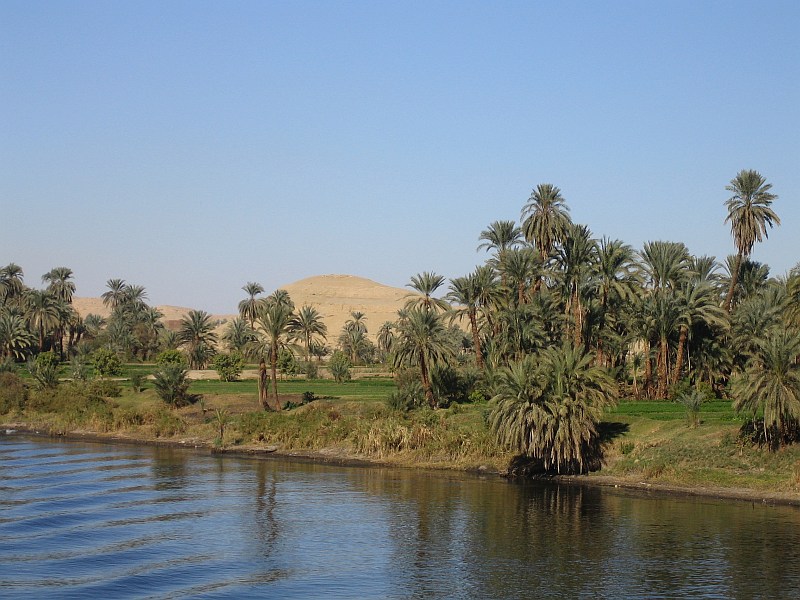
The River Nile dates back to the time of the famous Pharaohs of Egypt
RIVER NILE NATIONS TO FIGHT ANOTHER WAR SOON
BY ABDULMUMINI ADEKU.
Nations like Uganda, Ethiopia ,Sudan ,and Egypt ,Eritrea ,Burundi
,Rwanda ,Congo Kinshasa, Kenya may soon fight a major war if care is not taken over the management of the
resources of River Nile as it rips through Africa from the Delta around the Mediterranean
Sea into Lake Victoria in Uganda where it empties its content.
In a fact finding, the Proprietor of Top Max City Schools in
Lagos, Nigeria, Mr Jake Topa Peji told Paedia Express Multimedia that water
plays a significant role in our daily lives and that a lot of battle by the military
of nations around the River Nile will be fought very soon because of a large
number of people competing for a limited resource.
He explained that some of the nations have fought a war in
the past over River Nile with Egypt promising
to provide electricity after a truce was reached but sadly the land of the Pharaohs
did not fulfill there promises after constructing the Aswan High Dam.
His Words"Do not forget that the Suez Canal is over the
same River Nile and because Egypt broke its promises now Ethiopia is building
about three dams on the same River
Nile"
"in the future I can assure you that a lot of war will be fought over water and its resources, in Darfur in Sudan ,the Janjaweed militia are fighting the natives and the government over water" In a desert country where 80,000,000 people are living off the water supplied by the river Nile… Egypt is facing a water crises.
The Nile has always been the life blood of Egyptian society and it’s importance can be dated back to the time of the Pharaohs.
Egypt
gets almost all of its water from the Nile. The quality of the river water is
seriously threatened by untreated industrial and agricultural wastes, sewage,
and municipal waste-water. In addition, the Aswan High Dam, which was completed
in 1970, has reduced the flow of the Nile and trapped the nutrient-rich silt,
which once fertilized the country’s farmland, behind it.
To
compensate for the loss of the silt, farmers make more use of chemical
fertilizers, which add to the water pollution. To increase crop yields they use
modern herbicides and pesticides, which also contribute to the pollution.
Furthermore, the reduced flow of the river increases the concentration of
pollutants in the remaining river water. The reduced amount of silt deposited
in the Nile Delta has caused the delta to shrink, resulting in coastal erosion
that threatens the lagoons that are important sources of fish. Finally,
year-round irrigation, using the water impounded behind the Aswan High Dam,
causes salts to accumulate in the soil, leading to the loss of some
agricultural land.
The Aswan Dam, completed in 1970 is being blamed for the loss of farmland, causing many traditional farmers to seek alternate employment in order to survive.
In a related story… Hundreds of people in the Egyptian town of Menoufia have fallen ill after drinking contaminated water raising further concerns over the Egyptian water crises.
Many experts from around the globe fear that water will become the “new oil”. Clean drinking water is a basic right and it has been speculated that wars will rage in the future over who owns the water supply.
In some parts of the world massive desalination plants are being built to meet the demands of an ever increasing population.
Egypt is expected to spend some $393.8m per year on building and operating desalination plants by 2016 according to Desalination Markets 2010.
In the meantime there is real world solution to the water crisis in Egypt.
As we continue to pollute our water supplies and disrupt the river systems in order to generate hydro electricity… We will see an ever increasing water problem around the globe.
The other biggest factor in the water issue is the global population explosion.
If you are living in Egypt or have recently travelled there… Tell us of your experience with the water crises.
The Nile Basin Initiative is a
partnership among the Nile riparian states that
“seeks to develop the river in a cooperative manner, share substantial
socioeconomic benefits, and promote regional peace and security”. The NBI began
with a dialogue among the riparian states that resulted in a shared vision to
“achieve sustainable socioeconomic development through the equitable
utilization of, and benefit from, the common Nile Basin water resources."[1] It was formally
launched in February 1999[1] by the water
ministers of nine countries that share the river: Egypt, Sudan, Ethiopia, Uganda, Kenya, Tanzania, Burundi, Rwanda, the Democratic Republic of Congo (DRC), as well as Eritrea as an observer.
From its beginning the Nile Basin Initiative has been supported by the World Bank and by other
external partners. The World Bank has a mandate to support the work of the NBI,
as lead development partner and as administrator of the multi-donor Nile Basin
Trust Fund.[2] One of the
partners is the "Nile Basin Discourse", which describes itself as
"a civil society network of organizations seeking to achieve positive
influence over the development of projects and programmes under the Nile Basin
Initiative".[3]
In
May 2010, five upstream states signed a Cooperative Framework Agreement to seek
more water from the River Nile — a move strongly opposed by Egypt and Sudan.[4] Ethiopia, Kenya,
Uganda, Rwanda and Tanzania were original signatories with Burundi signing in
February 2011.[5] The DRC is also
expected to sign, while Egypt and Sudan are not expected to do so.
Representatives of upstream countries said they were "tired of first
getting permission from Egypt before using river Nile water for any development
project like irrigation", as required by a treaty signed during the
colonial era between Egypt and Britain in 1929.[6] The new
agreement, once effective, is designed to replace the Nile Basin Initiative.
No comments:
Post a Comment